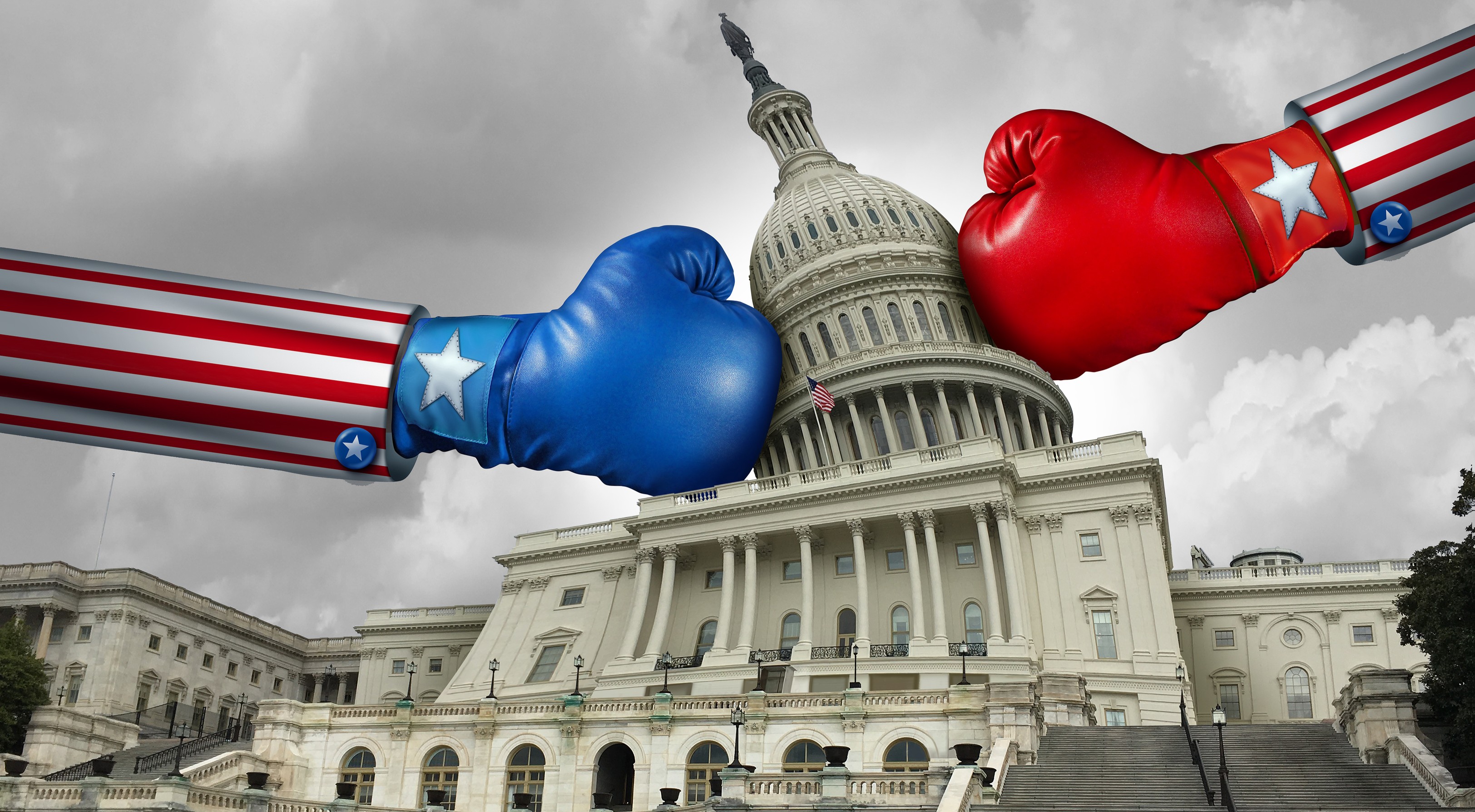
Gridlock In Washington: What It Means for Future Money Growth
November 3, 2025
 By Dustin Saia
By Dustin Saia
Dustin SaiaThe United States government is in another budget standoff and gridlock in Washington is once again making headlines. Since October 1, lawmakers have not agreed on a short-term funding bill, forcing parts of the federal government to shut down. The closure has now lasted more than a month, placing it just short of the record 35-day shutdown in 2018 and 2019. As the standoff continues, investors and consumers are asking how it could affect the economy and their financial outlook.
The Effect on Benefits and Economic Growth
For many households, the most immediate concern is disruption of government benefits and programs. Funding for the Supplemental Nutrition Assistance Program, known as SNAP, lapsed on November 1, leaving millions uncertain about their next round of food assistance. The issue is currently being reviewed by the courts to determine whether the government must use emergency funds to continue the program during the shutdown.
The Affordable Care Act marketplace, which began open enrollment this month, is also facing challenges. Some participants could see higher premiums as enhanced federal subsidies expired with the shutdown. These subsidies remain a major point of disagreement in the budget negotiations, and it is unclear whether they will return once the government reopens.
Shutdowns ripple beyond individual households and into the broader economy. When federal spending pauses and benefits are delayed, consumer demand softens, especially among lower income households, creating a drag on growth. Government spending also supports businesses and contractors through projects, payrolls, and local economic activity. When that spending stops, work in sectors such as construction, technology, and defense slows, further weighing on the economy.
The Congressional Budget Office estimates a four-week shutdown could reduce fourth quarter 2025 growth by about one percent, while an eight-week standoff could trim growth by two percent.
The Federal Reserve and Limited Data
While federal programs face pressure, monetary policymakers are navigating a different challenge, trying to guide the economy with limited information. The Federal Reserve lowered interest rates by a quarter point last week, marking its second cut of the year, to support growth amid uncertainty.
Many key reports the Federal Reserve relies on, including employment numbers and inflation readings, have been delayed or suspended because agencies have furloughed workers. Without timely data, the Fed has less visibility into how the economy is performing, making policy decisions more difficult. This limited information complicates the Fed’s ability to maintain stable prices and maximum employment, and could make future rate decisions less predictable.
Markets and the Road Ahead
Despite political gridlock, financial markets remain resilient. The S&P 500 rose 2.3 percent in October as investors looked past short-term disruptions and focused on corporate earnings and interest rate changes. Historically, markets recover quickly once shutdowns end, because most economic activity continues outside of federal operations.
Long shutdowns can weigh on consumer confidence, delay federal contracts, and reduce spending by furloughed workers. These effects can slow business activity. While shutdowns rarely cause lasting market downturns, the longer they persist, the more uncertainty they create for growth and earnings.
Takeaway
For long-term investors, the best strategy remains to stay the course. Markets have historically been resilient to political volatility, and diversified portfolios tend to recover as the economy stabilizes.
Although the shutdown may temporarily cloud economic data and slow growth, it tends to create short-term noise rather than lasting damage. Long-term investing continues to be the most reliable way to navigate periods of uncertainty. As always, if you have any questions or would like to review your financial plan, please reach out to your advisor today. Your financial success matters.